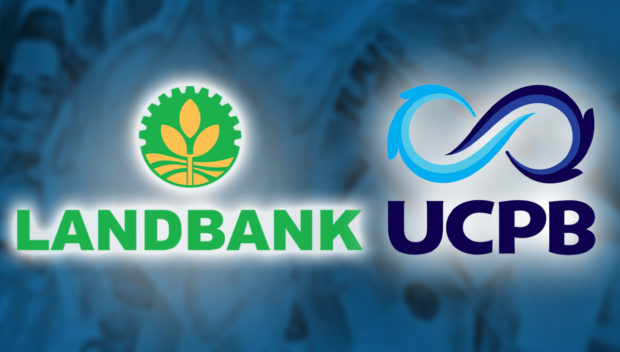
MANILA, Philippines—State-run Land Bank of the Philippines (Landbank) on Monday (Feb. 28) said its merger with United Coconut Planters Bank (UCPB) taking effect on Tuesday (March 1) will benefit the agriculture sector the most.
“Landbank’s union with UCPB advances the government’s development agenda to support the agriculture sector through a stronger, more resilient and unified banking institution,” said Cecilia Borromeo, Landbank president and CEO.
“The merger places us in a better position to reach and service more farmers, fishers and other players in the agribusiness value chain nationwide,” Borromeo said.
The merger will “provide a more robust support to the country’s agriculture sector for inclusive rural development,” Landbank said.
Landbank will be the surviving entity in the merger that shall create the Philippines’ second-biggest bank in terms of assets, totaling P2.9 trillion.
“More importantly, the increased financial muscle will significantly grow the bank’s loan portfolio directed at servicing the whole agriculture sector alongside key development industries,” Landbank added.
With the merger, Landbank and UCPB’s customers can access a total of 677 branches and branch-lite units, 2,800 automated teller machines (ATMs), as well as 228 cash deposit machines across the country.
“Customers are assured that the services of both Landbank and UCPB will continue to be unhampered, with deposits remaining intact and secured in their respective servicing branches,” Landbank said.
“All UCPB branches will continue to operate and serve UCPB customers until the systems integration and accounts migration to Landbank are completed. The majority of UCPB branches will be converted as Landbank branches and will be announced regularly to the public,” according to Landbank.
“Existing service fees will still apply for cash withdrawals of UCPB cardholders at Landbank ATMs until all accounts are converted or migrated to Landbank that comes with new ATM cards,” it added.
Set into motion by President Rodrigo Duterte’s Executive Order (EO) No. 142 last year, the Landbank-UCPB merger was prioritized by the government to save UCPB, Finance Secretary Carlos Dominguez III said last week.
Dominguez said the Duterte administration cancelled Landbank’s merger with Development Bank of the Philippines (DBP), which is also state-run, under a 2016 EO of the late president Benigno Aquino III because it was UCPB which had “a potential risk of failure” that would have cost the Philippine Deposit Insurance Corp. (PDIC) P150 billion in losses.
Industry sources had said that UCPB’s capital adequacy ratio (CAR) had been set to fall below the Bangko Sentral ng Pilipinas’ (BSP) mandatory level. Had it not been for the state-run PDIC’s capital notes, which saved UCPB in the past, the bank would have been non-compliant with the CAR requirement.
The merger would end the government’s direct support to ailing UCPB, whose shares had been acquired through Marcos-era coco levy funds, which the Supreme Court had declared as publicly owned.
In 2003, the PDIC granted financial assistance to UCPB’s recapitalization program. The PDIC also restructured a portion of its assistance into P12-billion convertible capital notes in 2019. This was on top of the “substantial deposits” maintained by the government, through the Bureau of the Treasury, in UCPB, PDIC president and chief executive Roberto Tan said in 2020.
Asked by the Inquirer if the Duterte administration missed a chance to strengthen Landbank and DBP when it cancelled Aquino’s EO, Dominguez replied: “There was no ‘missed chance’ but rather a deliberate decision to focus on prioritizing the de-risking of the financial system by having UCPB absorbed by the well-capitalized and well-managed Landbank.”
“Now that the [Landbank-UCPB] merger is done, there may be an opportunity to reconsider the original plan” to merge Landbank and DBP, Dominguez said.
SOURCE: https://business.inquirer.net/













